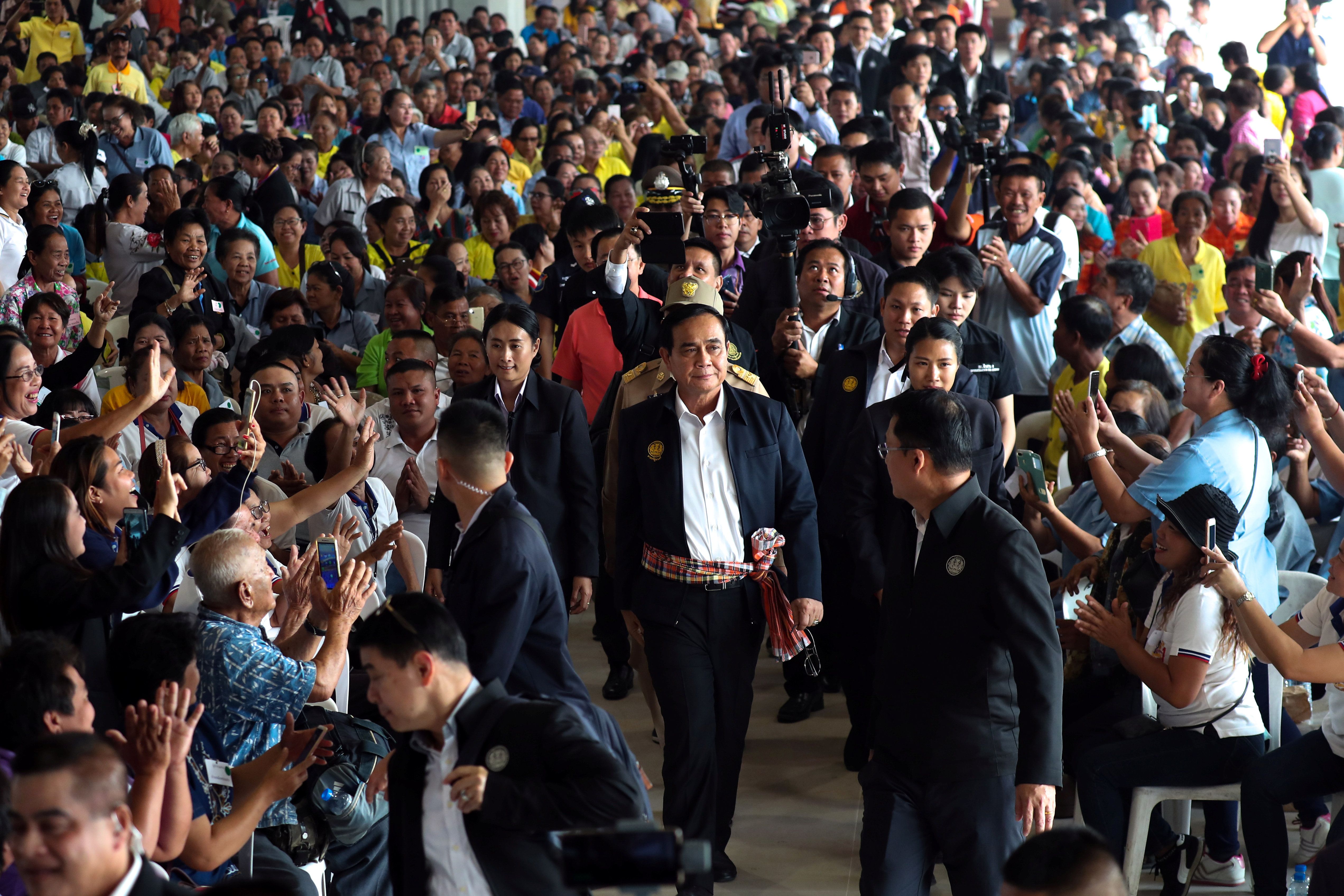March 21, 2019
During a speech in 1937, Winston Churchill warned that "Dictators ride to and fro upon tigers from which they dare not dismount." In the intervening years, we've seen ample evidence that he was right. Any leader who forcibly seizes political power knows that giving it up can be dangerous.
Keep that in mind this weekend when you read that voters in Thailand have elected a new parliament. Sunday's vote will be the first national election in that country since its military grabbed power in 2014, but the generals have taken steps to ensure their seat atop this Southeast Asian tiger remains secure.
Here's ten ways to create a fake democracy, Thailand edition:
- In 2016, the military proposed a new constitution that grants the generals sweeping new powers based on broadly worded laws designed to crush dissent. A public referendum on the document was held, but the army made it illegal for anyone to campaign publicly against it. The constitution was enacted with support from only about one-third of eligible voters.
- The new constitution makes illegal any act "which undermines public peace and order or national security, the monarchy, national economics or administration of state affairs."
- These laws have been enforced: Citizens who simply share or "like" online material that courts say violates these new standards have already been sent to prison and/or re-education camps.
- Political candidates accused of violating these laws have been removed from this weekend's election ballot.
- Thailand's courts are packed with judges approved by the military.
- An Election Commission, appointed by the military, will determine whether the election was fair.
- The new constitution allows for direct election of MPs for the lower house of parliament, but it has changed the voting system's proportionality rules to ensure fewer seats go to the political faction associated with the exiled former Prime Minister Thaksin Shinawatra, which has won every national election since 2001.
- All 250 members of the upper house will be chosen by the military. This will give the generals the dominant influence within the elected government, because the upper and lower houses will together elect the new prime minister in May or June.
- The new constitution permits a person who has not won election to parliament to serve as prime minister. A person like, for example, General Prayuth Chan-ocha, who has ruled Thailand since the 2014 coup.
- It also allows the military to impose a 20-year policy plan that all future governments must honor.
In 1932, Thailand became Southeast Asia's first democracy. For now, representative government in that country exists only on paper.
From Your Site Articles
Related Articles Around the Web
More For You
With close ties to both the US and China, can Singapore survive in an increasingly fragmented and chaotic world? Singapore’s President Tharman Shanmugaratnam joins Ian Bremmer on the GZERO World Podcast.
Most Popular
Think you know what's going on around the world? Here's your chance to prove it.
UK Prime Minister Keir Starmer shakes hands with Chinese President Xi Jinping, ahead of a bilateral meeting in Beijing, China, on January 29, 2026.
Carl Court/Pool via REUTERS
This week, Prime Minister Keir Starmer became the first UK leader to visit China in eight years. His goal was clear: build closer trade ties with Beijing.
Igmel Tamayo carries charcoal to sell on the side of a road for use as cooking fuel in homes, after US President Donald Trump vowed to stop Venezuelan oil and money from reaching the island as Cubans brace for worsening fuel shortages amid regular power outages, on the outskirts of Havana, Cuba, on January 12, 2026.
REUTERS/Norlys Perez
© 2025 GZERO Media. All Rights Reserved | A Eurasia Group media company.
